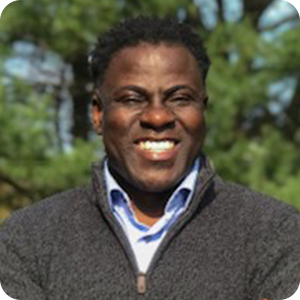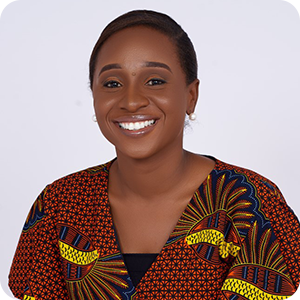It is no secret that the future of a nation depends on the quality of education delivered to its children. Indeed, childhood is the most important period of a person’s life, serving as a foundation for the development of their behavior, skills, and even future income. However, even in the 21st century, over one billion children worldwide are still living in poverty with very little or no access to education and basic healthcare, and often facing hunger. On International Children’s Day, we asked our DevelopmentAid experts several questions in relation to this. Check their opinions about the most pressing issues in this article.
Key Takeaways:
- Currently, out of approximately 2 billion children in the world aged zero to 14, an estimated 1 billion live in poverty.
- Access to education, healthcare, clean water and other basic needs is the biggest challenge facing children today.
- According to experts, technology is the main element that makes the difference between the education children receive today compared to that of 20 years ago.
- Investing in children has numerous benefits and is considered crucial for social and economic development.
DevelopmentAid: What are the biggest challenges for children in 2023, particularly in poor countries?

“Access to quality and culturally relevant education, safety, basic healthcare, recovery from the impact of the recent COVID-19 pandemic, and other necessities like food and clean water remain some of the biggest challenges facing children. This is compounded by other exacerbating issues such as poverty, child labor, and exploitation.”

“I think the greatest challenges facing children in poor countries are the lack of access to basic needs, i.e., food, clean water, shelter, and adequate healthcare, the lack of access to quality basic education, child labor, and various forms of abuse, which they live with practically every day of their lives.”
DevelopmentAid: How do you perceive the education that children receive today compared to 20 years ago for example?

“Children today enjoy technological advancements, diverse learning options, and better access to information, but face new challenges like digital disparities. However, children in poor countries also face the effects of climate change such as food insecurity and displacement, and digital technology’s impact on existing inequalities.”

“The education that children receive today compared to that of 20 years ago has seen some significant transformations. Technology has completely changed the way children learn. Computers and the internet have become an essential part of modern-day education.”
DevelopmentAid: Why is it that investment in children is considered to be one of the best investments?

“Investing in children is crucial as it breaks the poverty cycle, promotes economic growth, and reduces inequality. Through education and improved healthcare services, it (investment – editor’s note) assures a brighter future and sustainable development, which benefits both individuals and communities. It also creates a more skilled workforce, and it empowers individuals with the tools they need to make informed decisions, improve their health, and contribute to their communities.”

“Governments are increasingly focusing on quality education for all, promoting inclusivity, and reducing disparities across different regions and social classes in line with SDG 4. Compared to 20 years ago, countries like Ghana are now placing emphasis on technical and vocational education to equip young people with the skills that will make them employable and enhance their livelihoods. Investment in children is one of the best investments because it has a significant and lasting impact on individuals, families, communities, and nations as a whole. This type of investment involves providing children with access to quality education, healthcare, and proper nutrition, as well as fostering safe and nurturing environments that promote physical and emotional well-being. Investing in children can help to break the cycle of poverty.”
DevelopmentAid: What should the international community do to improve children’s lives?

“Investment in timely and quality education, safety, inclusive healthcare, and needs like food and clean water, while also addressing systemic issues like poverty, inequality, child exploitation, and climate change as well as promoting inclusivity and embracing diversity.”

“The international community must ensure that basic education is made accessible to all children wherever they find themselves, irrespective of their background, and no child should be denied this fundamental right. Children should not be denied access to quality healthcare either. The aid community must ensure that children who are due to be vaccinated receive their immunizations and receive proper nutrition to improve their survival chances. To improve children’s lives, the international community should also take pragmatic steps to prevent the violation of children’s rights and improve their protection by enacting laws and frameworks.”
DevelopmentAid: What is your message for parents, caregivers and teachers on International Children’s Day?

“Prioritize children’s education, (mental) health, and well-being, while also fostering a safe, supportive, and inclusive environment that promotes their growth, development, and happiness.”

“Parents, caregivers, and teachers must always remember that every child is unique and belongs within a family, with a secure childhood, surrounded by love and respect. Each child brings their own potential to the world and our love, attention, and guidance can go a long way in shaping their lives and making them responsible adults in the future. Parents and caregivers, etc., must teach children to appreciate various cultures and traditions, inclusive of race, ethnicity, and religious differences. Children should also be encouraged to learn and educate themselves about various domains in the world since the world has become a global village.”
See also: Can sports foster development in developing nations? | Experts’ Opinions
Working with and for children could be one of the most rewarding missions for an international development expert. Tenders and grants for individuals, over a thousand short and long-term job opportunities in the field and many other options could be in the palm of your hand by becoming an Individual Professional Member today!

